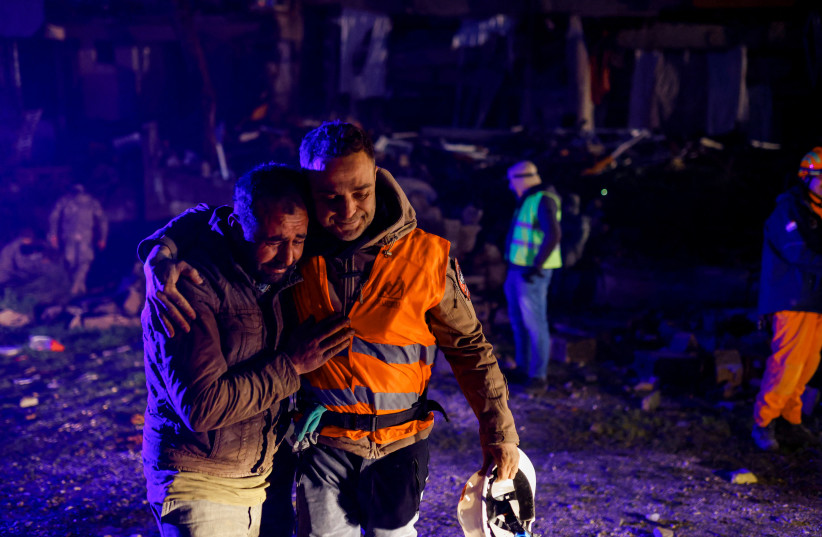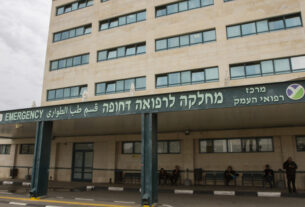GAZIANTEP, TURKEY – Emergency services not only need to contend with physical injuries when responding to Monday’s deadly earthquake in Turkey, but they also need to treat victims’ trauma and mental wounds.
United Hatzalah volunteer and Psychotruama specialist Sophie Donio, who is currently working on the rescue mission in Turkey explained to The Jerusalem Post that trauma can be induced by experiencing or seeing something terrible and unexpected. However, everyone will react in different ways and not everyone will have trauma induced by the same event.
In the immediate term, sufferers of trauma might freeze in place and become unresponsive in a dangerous place, or might not be in the state of mind to seek medical attention or shelter from the elements.
In the long term, the experience can manifest into post-traumatic stress disorder (PTSD). Those suffering from PTSD might have short patience, develop addictions, heightened wariness, and depression. All these may damage and disrupt their relationships.
The sooner that trauma is treated, the less chance there is of developing PTSD.
“The main idea for treating trauma is to have people who are frozen, not responding, and bring them back to reality,” said Donio, who is also a therapist in civilian life.
How can a person be brought back to reality during a traumatic event?
This is done in four ways. First, the specialists and responders ensure that the victims don’t feel alone by talking to them.
Those that are unresponsive verbally can be helped break free from the moment they’re trapped in by providing them with small tasks to make them feel as if they’re helping, such as bringing another person a bottle of water.
Sometimes victims may be overwhelmed by their feelings, so asking them questions to prompt them to think rationally might help. A responder can ask them how many people were with them in the house to push them to take stock.
Lastly, those that are confused need to be made to understand that the event is over. Building a personal connection and allowing them to talk is important as it will allow them to feel safe.
As aftershocks still shake the region, responders like United Hatzalah and IsraAID will face a great challenge in healing these wounds.
IsraAID’s core investigation team came with United Hatzalah to make initial assessments for long-term aid.
According to Shachar May, in addition to water and hygiene kits, they’ve also brought a social worker and resilience kits. These kits include stress relief activities, books, games, and stress balls.
“One of the things we’ve found most effective in disasters is providing support to women and children,” said May.




